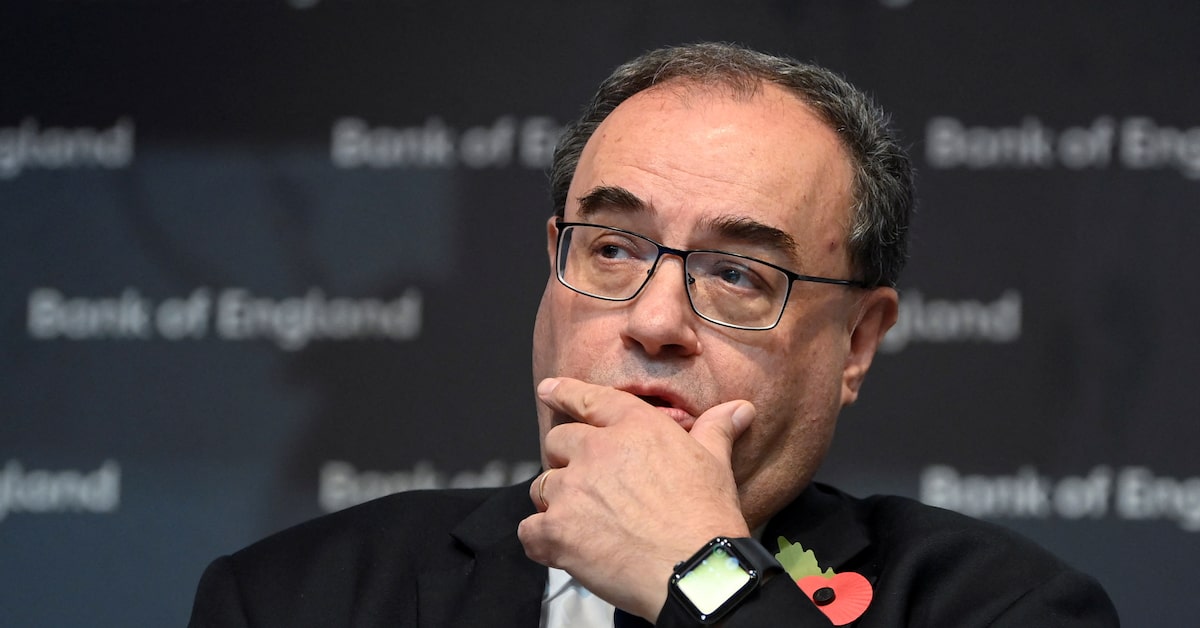Can Closer EU Trade Reverse Brexit's Economic Harm? BOE's Bailey Weighs In

Table of Contents
The Economic Impact of Brexit on the UK
Reduced Trade with the EU
Brexit has undeniably reduced trade volume with the EU, impacting various sectors significantly. The consequences extend beyond simple numbers; they represent real losses for businesses and livelihoods.
- Specific examples of trade disruptions: Increased customs checks have led to delays and increased costs for businesses exporting goods to the EU. The automotive industry, for instance, has experienced significant supply chain disruptions.
- Increased tariffs: New tariffs on certain goods have raised prices and reduced competitiveness for UK exporters.
- Non-tariff barriers: Regulatory differences and complex customs procedures represent substantial non-tariff barriers, adding significant costs and complexity for businesses.
- Data points: Official government statistics reveal a substantial drop in UK exports to the EU post-Brexit, particularly noticeable in the agricultural and manufacturing sectors. For example, data from the Office for National Statistics (ONS) shows a X% decrease in exports of [specific product category] to the EU.
Increased Costs for Businesses
Navigating the new trade landscape has imposed significant costs on UK businesses. New customs regulations and administrative burdens have added layers of complexity and expense.
- Increased paperwork: Businesses now face extensive paperwork and documentation requirements for exporting goods to the EU.
- Delays in supply chains: Customs checks and border controls have led to significant delays in getting goods to market.
- Higher transportation costs: The increased complexity of logistics has added to transportation costs for businesses.
- Expert quotes: "[Quote from a business leader on the increased costs and challenges of trading with the EU post-Brexit]," highlighting the real-world impact on UK businesses.
Impact on Investment and Growth
The uncertainty surrounding Brexit has dampened foreign direct investment (FDI) and slowed economic growth. Businesses are hesitant to invest in a climate of uncertainty.
- Decline in FDI: The UK has seen a decrease in FDI inflows since the Brexit vote, reflecting investor concerns about the UK's future economic prospects.
- Lower GDP growth projections: Numerous economic forecasts predict slower GDP growth for the UK compared to pre-Brexit projections.
- Reduced business confidence: Surveys of business leaders consistently indicate lower confidence levels due to Brexit-related uncertainties.
- Data points: Statistics from the ONS and the Bank of England clearly show a decline in FDI and a slowdown in GDP growth since Brexit.
The Potential of Closer EU Trade Relations
Exploring New Trade Agreements
Negotiating new or improved trade deals with the EU is a key avenue for mitigating Brexit's economic harm. The current trade agreement leaves room for improvement.
- Specific areas for potential improvements: Services, particularly financial services, represent a significant area where enhanced trade agreements could boost the UK economy.
- Successful EU trade agreements: Analyzing successful trade deals the EU has with other countries can provide valuable insights into potential areas for negotiation. For instance, the EU's trade agreement with [country example] could serve as a model.
Reducing Non-Tariff Barriers
Streamlining customs procedures and reducing regulatory hurdles would significantly enhance trade flows.
- Examples of specific non-tariff barriers: Differences in product standards, sanitary and phytosanitary regulations, and customs procedures all represent significant barriers.
- Potential solutions: Increased cooperation and harmonization of regulations could reduce these barriers.
- Expert opinions: Trade experts advocate for pragmatic solutions to reduce non-tariff barriers and facilitate smoother trade between the UK and the EU.
Boosting UK Exports to the EU
Targeted strategies are needed to increase the competitiveness of UK goods and services in the EU market.
- Potential strategies: This includes targeted marketing campaigns aimed at EU consumers, financial support and training for exporting businesses, and improved product development to better meet EU market demands.
- Data points: Market research and analysis are crucial for identifying opportunities and developing effective strategies for boosting UK exports.
Andrew Bailey's Perspective and the BOE's Role
Bailey's Statements on Brexit and Trade
Andrew Bailey has consistently highlighted the economic challenges posed by Brexit and the importance of closer trade relations with the EU.
- Quotes: "[Insert direct quotes from Andrew Bailey's statements regarding Brexit's economic impact and the potential role of closer EU trade]."
- Analysis: Bailey's statements underscore the significance of mitigating the negative impacts of Brexit through enhanced trade cooperation with the EU.
BOE's Economic Forecasts and Policies
The BOE's economic forecasts and monetary policy decisions are significantly influenced by the state of UK-EU trade relations.
- Key economic indicators: The BOE closely monitors trade data, inflation, investment levels, and other key indicators related to Brexit's economic impact.
- BOE's policies: The BOE's monetary policies aim to stabilize the economy and mitigate the negative effects of Brexit, including potential inflationary pressures caused by trade disruptions.
Conclusion: Can Closer EU Trade Reverse Brexit's Economic Harm?
The economic impact of Brexit on the UK is undeniable, manifesting in reduced trade with the EU, increased costs for businesses, and slower economic growth. However, closer EU trade relations present a significant opportunity to mitigate some of this harm. Improved trade agreements, reduced non-tariff barriers, and strategic efforts to boost UK exports could all contribute to economic recovery. Andrew Bailey's perspective and the Bank of England's actions underscore the gravity of the situation and the need for proactive measures. While the path towards closer trade ties with the EU is not without complexities, it presents a vital avenue for easing the economic consequences of Brexit. Understanding the intricacies of Brexit's impact on the UK economy and exploring avenues for closer EU trade are crucial steps towards economic recovery. Continue the conversation and explore further research on this critical topic.

Featured Posts
-
 Glastonbury And San Remo 2025 Lineups Announced
May 31, 2025
Glastonbury And San Remo 2025 Lineups Announced
May 31, 2025 -
 Grossuebung Am Bodensee Katastrophenschutz In Hard Im Ernstfalltest
May 31, 2025
Grossuebung Am Bodensee Katastrophenschutz In Hard Im Ernstfalltest
May 31, 2025 -
 Tuesday March 11th Complete Orange County Sports Scores And Stats
May 31, 2025
Tuesday March 11th Complete Orange County Sports Scores And Stats
May 31, 2025 -
 Isabelle Autissier L Interview Collaborer Pour Un Monde Meilleur
May 31, 2025
Isabelle Autissier L Interview Collaborer Pour Un Monde Meilleur
May 31, 2025 -
 Creating The Good Life Mindset Habits And Actions
May 31, 2025
Creating The Good Life Mindset Habits And Actions
May 31, 2025
